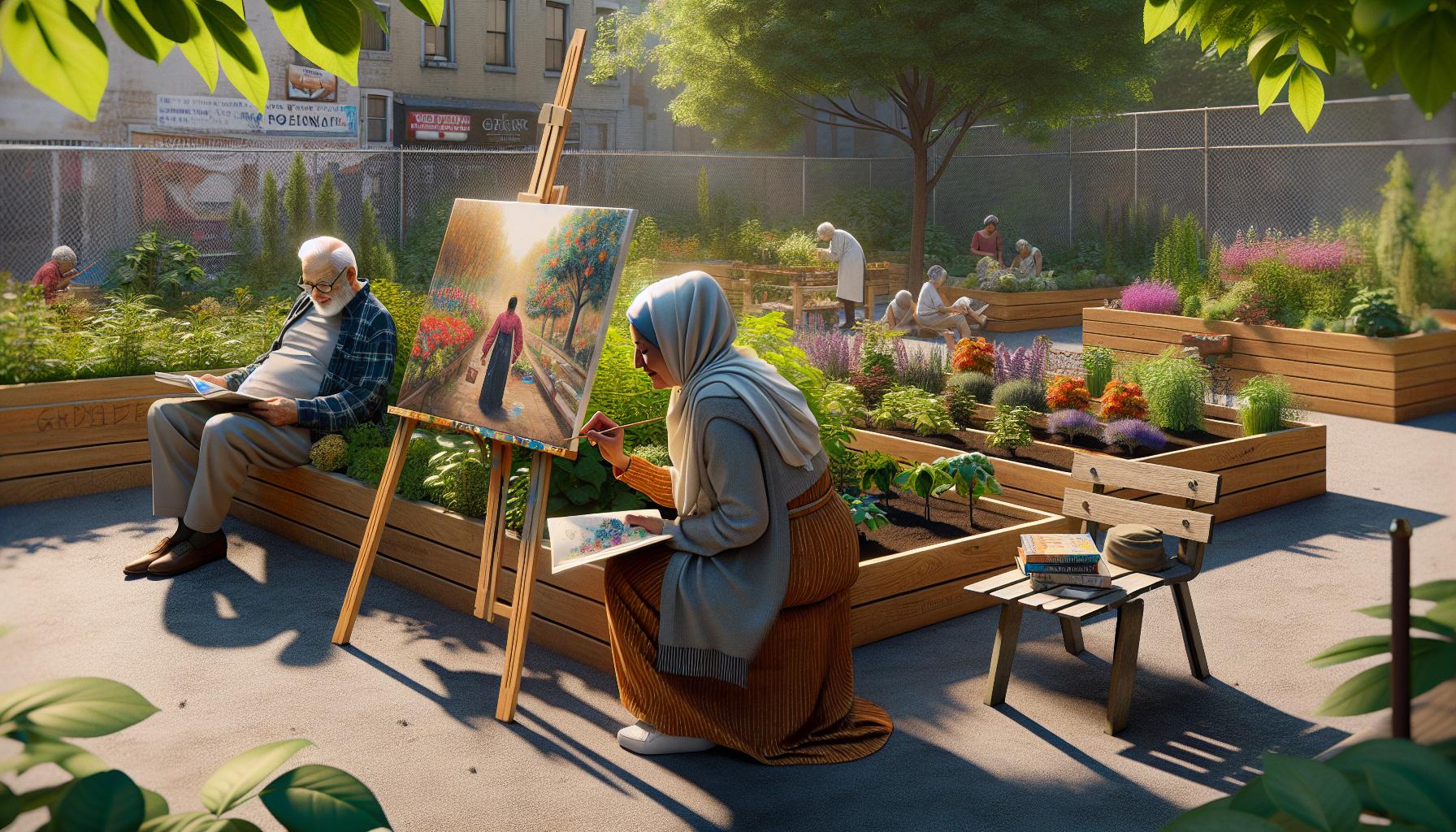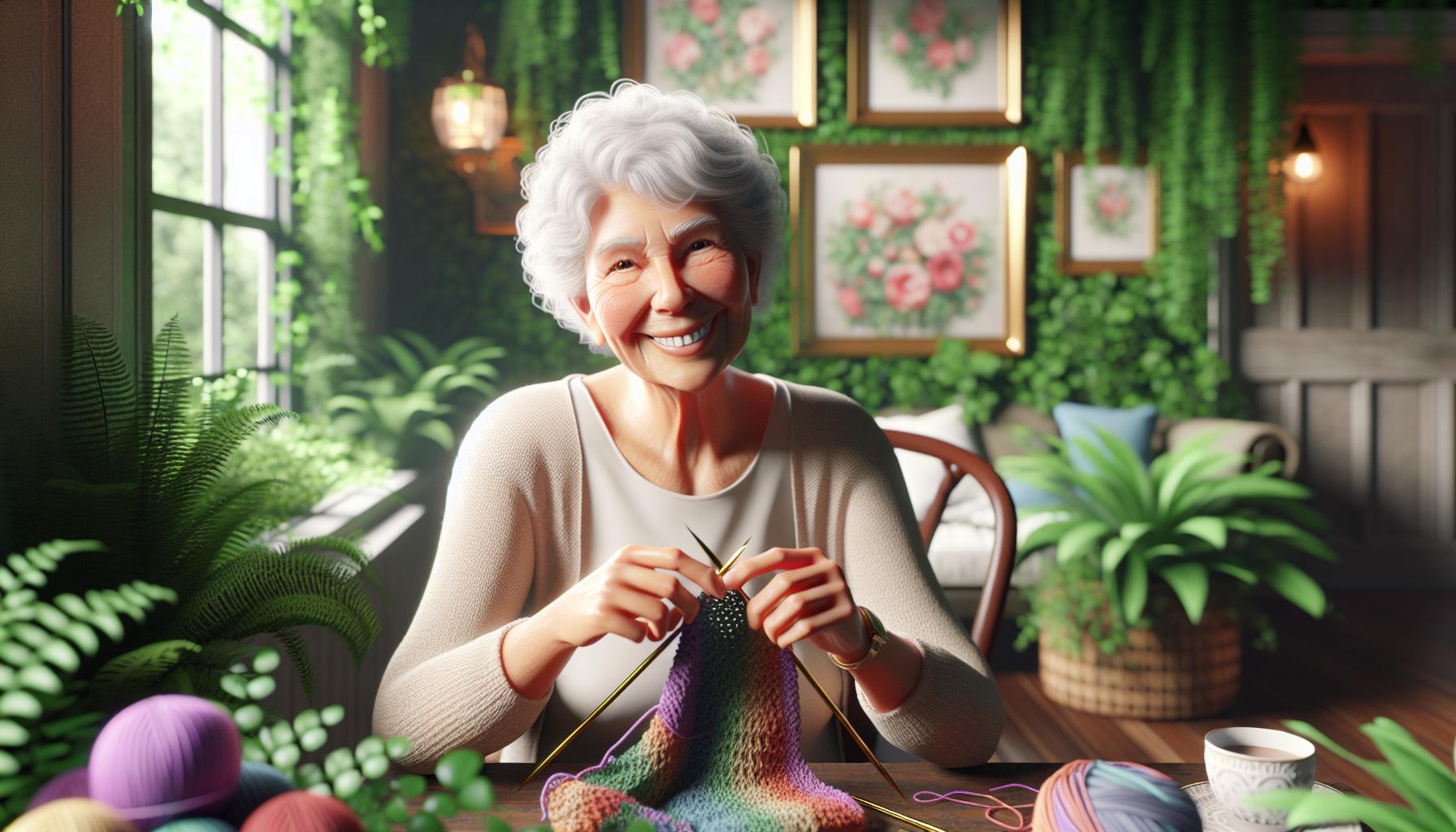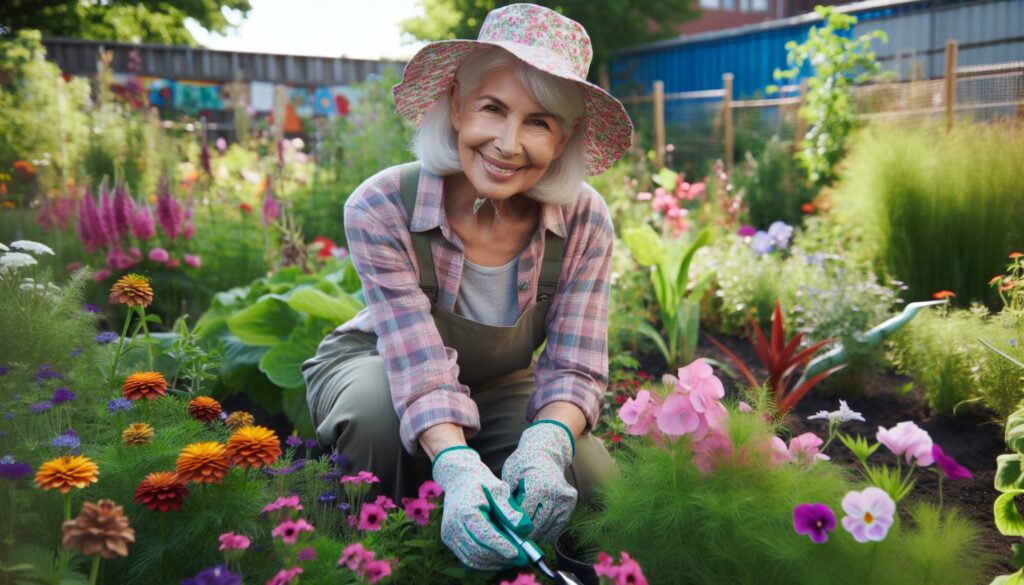As the golden years approach, many wonder how to fill their time with joy and purpose. Hobbies for the elderly aren’t just a way to pass the time; they can spark creativity, boost mental health, and even lead to new friendships. Who knew that picking up knitting could lead to a heated rivalry over the best scarf in the neighborhood?
From gardening to painting, the options are endless and often surprisingly entertaining. It’s never too late to discover a passion or dust off an old one. So grab those gardening gloves or that long-forgotten guitar; it’s time to dive into the delightful world of hobbies. After all, why should the young folks have all the fun? Let’s explore how these engaging activities can add a sprinkle of excitement to life’s later chapters.
Hobbies For Elderly
Hobbies significantly contribute to the well-being of elderly individuals. Engaging in activities like gardening can enhance physical health and provide essential exercise. Pursuing creative hobbies such as painting stimulates cognitive functions, keeping the mind active and engaged.
Social interactions often increase through shared hobbies. Joining a community group for book reading or knitting encourages the development of friendships and reduces feelings of isolation. Moreover, participating in group activities fosters a sense of belonging.
Mental health benefits arise from hobbies that provide enjoyment. Music, for instance, can evoke positive emotions and memories, leading to improved mood stability. Crafting allows for self-expression, which promotes psychological well-being.
Hobbies also help seniors set and achieve goals. Finishing a puzzle or completing a new knitting project instills a sense of accomplishment, enhancing self-esteem. Regular engagement in hobbies cultivates routine, which can impart structure to daily life.
Cognitive decline risks diminish as individuals stay mentally active through various activities. Learning new skills, such as playing a musical instrument, challenges the brain and keeps neural pathways strong. Continuous learning opportunities encourage lifelong engagement.
Overall, integrating hobbies into daily routines enriches the lives of elderly individuals. They promote healthier lifestyles, empower personal growth, and support emotional well-being. Hobbies ultimately offer a fulfilling way to spend time and experience life’s joys in later years.
Popular Hobbies For Elderly

Engaging in Hobbies for Elderly offers elderly individuals a means to boost creativity, improve mood, and build connections. Many activities can cater to various interests and capabilities.
Arts And Crafts
Arts and crafts allow elderly individuals to express creativity through hands-on activities. Painting, drawing, or crafting can enhance fine motor skills and stimulate the mind. Group classes often encourage social interaction, thereby reducing feelings of isolation. Additionally, creating art may serve as an emotional outlet, providing a sense of fulfillment. Participating in community art projects fosters a shared sense of achievement among peers.
Gardening
Gardening promotes physical activity and mental well-being for elderly individuals. Tending to plants or flowers requires gentle exercise, which can enhance mobility. Engaging with nature has proven beneficial for reducing stress and improving mood. Raised garden beds offer accessibility for those with limited mobility, while community gardens encourage socialization and teamwork. Additionally, growing fresh produce supports a healthy diet, further benefiting overall health.
Reading And Writing
Reading and writing contribute significantly to cognitive stimulation in elderly individuals. Many enjoy diving into books, exploring different genres that spark interest and curiosity. Participating in book clubs fosters discussions and socialization, creating a supportive community. Writing, whether journaling or storytelling, encourages self-expression and reflection. Both activities enhance mental engagement, benefiting memory retention and cognitive function.
Music And Dance
Music and dance provide exhilarating outlets for elderly individuals, enhancing mental health and mood. Listening to music can evoke cherished memories and cultivate enjoyment. Group dance classes often encourage social interaction, improving physical health through movement. Participating in sing-alongs or musical gatherings fosters community spirit and camaraderie. Additionally, exploring different musical genres stimulates mental activity and emotional well-being.
Benefits Of Engaging In Hobbies

Engaging in Hobbies for Elderly offers numerous advantages for the elderly, enhancing their overall quality of life.
Mental Health Improvement
Involvement in hobbies decreases symptoms of anxiety and depression. Activities like painting or playing music serve as effective stress relievers. Some studies indicate that creative pursuits improve cognitive flexibility, leading to better problem-solving skills. Regular engagement fosters a sense of purpose and accomplishment. Enjoying these activities can elevate mood and promote positive feelings. Seniors who participate in group activities often report increased self-esteem and happiness. Hobbies also encourage self-expression, making it easier to process emotions and experiences.
Social Interaction
Participation in shared hobbies fosters social connections. Group activities, such as book clubs or dance classes, provide opportunities for forming friendships. Many elderly individuals find companionship through community gardening or cooking classes. Socializing regularly combats loneliness and isolation, which are common issues in older age. Interaction in these settings builds a sense of belonging and support. Networking through shared interests creates a welcoming environment that encourages sharing and laughter. Strong social ties benefit emotional health, leading to a more fulfilling life.
Physical Well-being
Engaging in physical hobbies boosts overall health and mobility. Activities like gardening or dancing promote movement and flexibility, which is crucial for maintaining physical function. Seniors participating in these hobbies often experience improved cardiovascular health and strength. Exercise performed during enjoyable activities helps maintain a healthy weight and enhances endurance. This physical benefit extends beyond mere exercise, contributing to better balance and coordination. Moreover, hobbies provide an avenue for routine, reinforcing healthy habits through consistent participation. Overall, physical activity derived from hobbies plays a vital role in the well-being of elderly individuals.
Choosing The Right Hobby

Selecting a Hobbies for Elderly involves considering personal interests and practical aspects. Understanding how hobbies can enhance life for the elderly is essential for making informed choices.
Personal Interests And Skills
Identifying personal passions leads to fulfilling hobby experiences. Exploring artistic interests can connect individuals with painting, crafting, or photography. Meanwhile, gardening may appeal to those who enjoy nature and outdoor activities. Skills like knitting or woodworking provide opportunities to create unique items. Individuals can also consider joining local clubs or classes, fostering a sense of community while pursuing shared interests. Recognizing personal strengths can guide the selection of hobbies that align with existing talents, enhancing enjoyment and engagement.
Accessibility And Safety
Considering accessibility is vital to ensure Hobbies for Elderly remain enjoyable. Activities should be easily accessible to accommodate physical limitations. Indoor hobbies like puzzle-solving or reading offer convenience and comfort. For outdoor activities, safety measures like comfortable seating or mobility aids can enhance enjoyment. Assessing the environment plays a key role in securing a safe space for hobbies. Seniors can opt for hobbies within their homes, ensuring a comfortable experience without compromising safety. Finding hobbies that balance enjoyment and practical considerations promotes sustained involvement and ongoing benefits.
Embracing hobbies can truly transform the lives of elderly individuals. These activities not only enhance creativity and mental health but also foster meaningful connections with others. By exploring various interests like gardening, arts and crafts, or music, seniors can find joy and purpose in their daily routines.
The benefits extend beyond mere enjoyment. Engaging in hobbies promotes physical activity, stimulates cognitive functions, and helps combat feelings of isolation. As they discover new passions or revisit old favorites, seniors can experience a renewed sense of accomplishment and self-esteem. Ultimately, integrating hobbies into their lives enriches their overall well-being and creates fulfilling experiences that resonate deeply in their later years.

